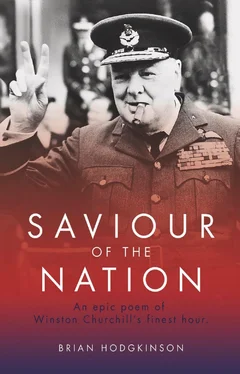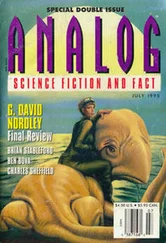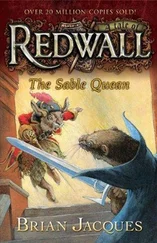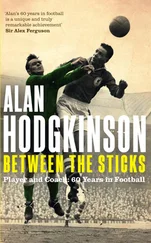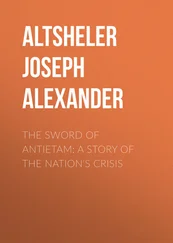Of Yugoslavs, Roumanians and Czechs,
Expect assistance from the western States.
Even Russia was more vulnerable.
Who now could stop the Anschluss ? Who could know
The sequel to the Führer ’s overture?’
But Churchill’s hopes of office were destroyed.
Edward of England, recently enthroned,
Became enamoured of a divorcee,
The American Mrs Simpson, disinclined
To rest content as mistress of a king.
Supported by the Church and by The Times,
Baldwin opposed the marriage. Even so,
Against this powerful triad, Churchill spoke
Of Edward’s right to personal happiness.
Established interests were too strong for him.
King Edward chose his wife and not the crown.
His brother George succeeded in his place,
And Churchill’s judgment was again denounced
As lacking wisdom, and impetuous.
Whatever chance remained for his return
Was cast away by loyalty to a king.
None knew, not even he, what hand of fate,
Protected him by failure. None would say
That he had held high office in the land
When policy had erred, when war was caused
By gross mistakes and lack of readiness.
4
Appeasement
Spring 1937
Upon the stage of British politics
Another actor rose to eminence.
The time had come for Baldwin to withdraw.
His powers were waning; he was not the man
To meet the challenge posed by Hitler’s threats.
Succeeding him came Neville Chamberlain,
A man of conscience, self-assured, austere,
Who brought to government much efficiency
Acquired by years in peacetime offices.
He sought to understand the claims of those
Who threatened to disrupt the world’s affairs:
If he could meet dictators face to face,
Discuss at length their problems, then assess
What compromise might meet their due demands,
Then none would have recourse to violent means.
Such was his view – negotiate, appease.
The path he trod, convinced of rectitude,
Was far too strait for men of Churchill’s ilk.
When Chamberlain soon planned to recognise
Italian claims on Ethiopia,
Eden resigned as Foreign Minister.
Henceforth he joined with that tiny band
Who stood opposed to Chamberlain’s designs,
And recognised increasingly the need
For Churchill’s hand on Britain’s helm of State.
The sacrifice of office Eden made
Awoke in Churchill feelings of respect,
And yet he also felt a dark despair
At this new step towards the brink of war.
Hitler was not chastened by the thought
That Chamberlain would meet his just demands.
Once more he’d break the treaty, threatening now
The Anschluss with his native Austria.
Courageously the Chancellor Schuschnigg tried
To show by plebiscite his country’s will,
But Hitler’s fury swept away such hopes.
Where music once had charmed the Viennese,
In Summer parks and vacant palaces,
There echoed now the clattering of tanks,
With harsh commands and footsteps of the Reich.
Just at the time when German soldiers marched
To implement the Anschluss , there occurred
A luncheon party at 10 Downing Street.
The guest of honour was von Ribbentrop,
Departing as the Reich’s ambassador,
To be, instead, its Foreign Minister.
Churchill, too, was present, and observed
A note was passed to Neville Chamberlain,
Who then seemed worried and pre-occupied.
Deliberately the Ribbentrops stayed late,
As though to hamper Chamberlain’s desire
To take some action over Austria.
When Churchill rose to leave, and said he hoped
That Anglo-German friendship would endure,
The wife of the ambassador was curt;
‘Make sure you do not spoil it!’ she replied.
The British government only could protest;
But Churchill spoke in quite another vein,
When, on the morrow, he addressed the House:
‘Again a solemn treaty is ignored,
To build, so it is claimed, a greater State;
Yet it transfers the Ostreich’s minerals,
And access to the Danube waterway.
Now south-east Europe lies at Hitler’s feet,
And Czechs and Slovaks henceforth are besieged.
How can appeasement check the Führer ’s will?’
Already Wehrmacht generals had prepared
A detailed plan to seize Bohemia.
The pretext was the Czech Sudetenland,
Where Germans claimed they were deprived of rights.
A Nazi party there became the tool
For Hitler’s pressure on the Czech regime.
Their leader, Henlein, would not compromise.
At Hitler’s bidding all he would accept
Was full succession to the German Reich.
In Berlin’s Sportspalast the Führer spoke,
Calling the German people to their fate:
To fight for Lebensraum , for blood and race.
His petty figure, with a small moustache
And puffy features, grey hypnotic eyes,
Black thinning hair that fell across his brow,
Was magnified by words of monstrous power,
Harsh consonants and long emphatic vowels
That rose within him, surging from his throat
With growing volume as the speech progressed.
His grimaces and deft, expressive hands
Conveyed swift moods of satire, or of hate,
And angry exultation. Those who heard
Were moved from dull respect, or apathy,
To yearn for action, violence and revenge.
Upon their mountain lines the Czechs stood firm,
Expecting help from France. Across the world,
The news predicted European war.
At Scapa Flow the naval squadrons watched
For submarines and pocket battleships.
In London air defences were alert.
Trenches were dug amidst the Autumn leaves;
Near public buildings sentries stood on guard.
At main line stations children waved goodbye,
En route to farms and distant cottages.
This was the dress rehearsal for a war
No more confined to fields of Picardy.
No treaty bound the British to the Czechs,
And Chamberlain was eager to redress
Those grievances he thought were genuine.
Alone he flew to Nazi Germany
To wrangle with the Führer face to face.
Nothing could be agreed. A last appeal
Was made to Hitler for a conference.
At Munich airport Chamberlain was hailed
By SS guards of honour. There they met,
The Premiers of Britain and of France,
The Duce and the Führer of the Reich,
To sign away the freedom of the Czechs.
‘This is my final claim’, the Führer said,
‘On territory of European States.’
To London Neville Chamberlain returned,
Proclaiming, as Disraeli once had done,
That peace with honour came from Germany.
In Parliament the great majority
Acclaimed with cheers the Premier’s success,
And, in the country, who did not rejoice
That war had been averted? Who would dare
To speak against what Chamberlain had done
And brave the odium of decent men,
Who did not see his terrible mistake
In thinking he could trust the Führer ’s word.
So, in the House, when Churchill rose to say
That we’d sustained a terrible defeat,
A total and unmitigated loss,
A storm of protest interrupted him.
But he continued, standing there unmoved,
Peering above his glasses at these men
Whose views he scorned. ‘Why have we failed to pledge
The safety of the brave and stubborn Czechs?
Now all is over. Silent and bereft,
The Czech Republic falls in the abyss;
Her people ruined, industry curtailed,
Читать дальше
